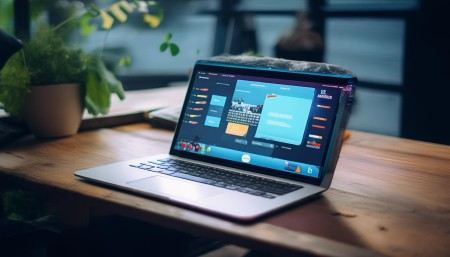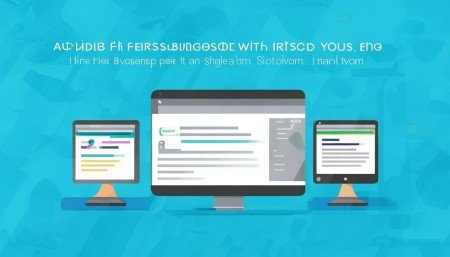
△Click on the top right corner to try Wukong CRM for free
Hey there! So, you're curious about CRM systems for retail operations, huh? Well, let me tell you, it's a pretty big deal in the world of business. Imagine having a tool that not only helps you keep track of all your customers but also makes sure they feel special every time they shop with you. That’s what a CRM system is all about.
Now, I know what you might be thinking: "Isn't that just a fancy way of saying a customer database?" Well, not exactly. Sure, it does store information about your customers, like their names, contact details, and purchase history. But it goes way beyond that. A good CRM system can help you understand your customers better, predict what they might want next, and even suggest the best way to reach out to them. It's like having a personal assistant who knows everything about your customers and is always ready to give you advice on how to make them happy.
Let me give you an example. Say you run a clothing store. With a CRM system, you can see which customers have bought from you before, what kind of clothes they usually buy, and when they last made a purchase. Now, imagine it’s getting close to the holiday season, and you’ve got a bunch of new winter coats in stock. Your CRM system can tell you which of your customers are most likely to be interested in those coats and even suggest sending them a personalized email or a text message with a special offer. Pretty cool, right?
But wait, there's more! A CRM system can also help you manage your inventory. You can set up alerts to let you know when you’re running low on certain items, so you never miss a sale because you ran out of stock. And if you have multiple stores, it can help you keep track of what’s selling where, so you can make sure each location has the right products at the right time.
Now, I bet you’re wondering, "How does this actually work in practice?" Well, let me break it down for you. When a customer makes a purchase, the CRM system records all the details. Then, it uses that data to create a profile for each customer. This profile includes things like their buying habits, preferences, and even how often they visit your store. Over time, the system learns more about each customer, and it can start making predictions and suggestions based on that information.
For instance, if a customer always buys a particular brand of jeans, the CRM system can flag that and suggest offering them a discount on that brand the next time they come in. Or, if a customer hasn’t visited your store in a while, the system can remind you to send them a friendly "We miss you!" message with a special offer to entice them back. It’s all about building relationships and keeping your customers engaged.
Another great thing about CRM systems is that they can help you with your marketing efforts. You can use the data to segment your customers into different groups, like frequent buyers, occasional shoppers, or those who haven’t visited in a while. Then, you can tailor your marketing messages to each group, making sure they get the right offers and information at the right time. This is much more effective than sending the same generic message to everyone, trust me.
And here’s something else to consider: a CRM system can also help you with customer service. If a customer calls or emails with a question or a problem, the system can pull up their profile and show you all the relevant information, like their past purchases and any previous interactions they’ve had with your store. This means you can provide a more personalized and efficient service, which is a huge plus for both you and your customers.
Now, I know some of you might be thinking, "This sounds great, but isn’t it going to be a pain to set up and use?" Actually, it’s not as complicated as you might think. Most modern CRM systems are designed to be user-friendly, with intuitive interfaces and easy-to-follow instructions. Plus, many of them offer training and support to help you get started. And once you’re up and running, you’ll wonder how you ever managed without it.
But, of course, no system is perfect, and there are a few things to keep in mind. First, you need to make sure you choose the right CRM system for your business. There are lots of options out there, and what works for one store might not be the best fit for another. So, do your research, read reviews, and maybe even try out a few different systems before you commit. It’s worth taking the time to find the one that’s right for you.

Second, you need to make sure you’re using the system effectively. Just having a CRM system isn’t enough; you need to use it regularly and make sure you’re inputting and updating the data. Otherwise, it won’t be as useful as it could be. And finally, you need to respect your customers’ privacy. Make sure you’re transparent about how you’re using their data and give them the option to opt-out if they don’t want to receive marketing messages.
So, there you have it—a quick rundown of CRM systems for retail operations. I hope this gives you a good idea of what they are and how they can benefit your business. If you’re still on the fence, just think about how much easier it would be to manage your customers, your inventory, and your marketing if you had a system that did all the heavy lifting for you. It’s like having a super-smart, always-on assistant who’s dedicated to helping you succeed.
Alright, I know I’ve given you a lot to think about, so let me wrap things up with a few questions and answers that might help clear up any lingering doubts.
Q: Do I really need a CRM system if my store is small? A: Even if your store is small, a CRM system can still be incredibly valuable. It can help you build stronger relationships with your customers, manage your inventory more efficiently, and make your marketing efforts more effective. Plus, as your business grows, you’ll already have the tools in place to handle the increased volume.

Q: How much does a CRM system cost? A: The cost of a CRM system can vary widely depending on the features you need and the size of your business. Some basic systems can be quite affordable, starting at just a few dollars per month. More advanced systems with additional features can cost more, but they often offer a free trial period so you can test them out before committing.
Q: Is it hard to train my staff to use a CRM system? A: Most modern CRM systems are designed to be user-friendly, so training your staff shouldn’t be too difficult. Many providers offer training and support to help you get started, and there are usually plenty of online resources and tutorials available. The key is to make sure everyone understands the importance of using the system consistently and accurately.
Q: Can a CRM system integrate with other tools I’m already using? A: Yes, many CRM systems can integrate with other tools you might be using, such as your point-of-sale (POS) system, email marketing software, and even social media platforms. This integration can help streamline your operations and make sure all your data is in one place. Just check with the CRM provider to see what integrations are available.

Q: What if I’m not tech-savvy? Can I still use a CRM system? A: Absolutely! Many CRM systems are designed to be user-friendly, even for those who aren’t particularly tech-savvy. They often come with step-by-step guides, video tutorials, and customer support to help you get started. And if you ever run into trouble, the support team is usually just a phone call or email away.
I hope these answers help, and if you have any more questions, feel free to ask. Good luck with your retail operations, and remember, a CRM system can be a game-changer for your business!

Related links:
Free trial of CRM
Understand CRM system
AI CRM Systems

△Click on the top right corner to try Wukong CRM for free